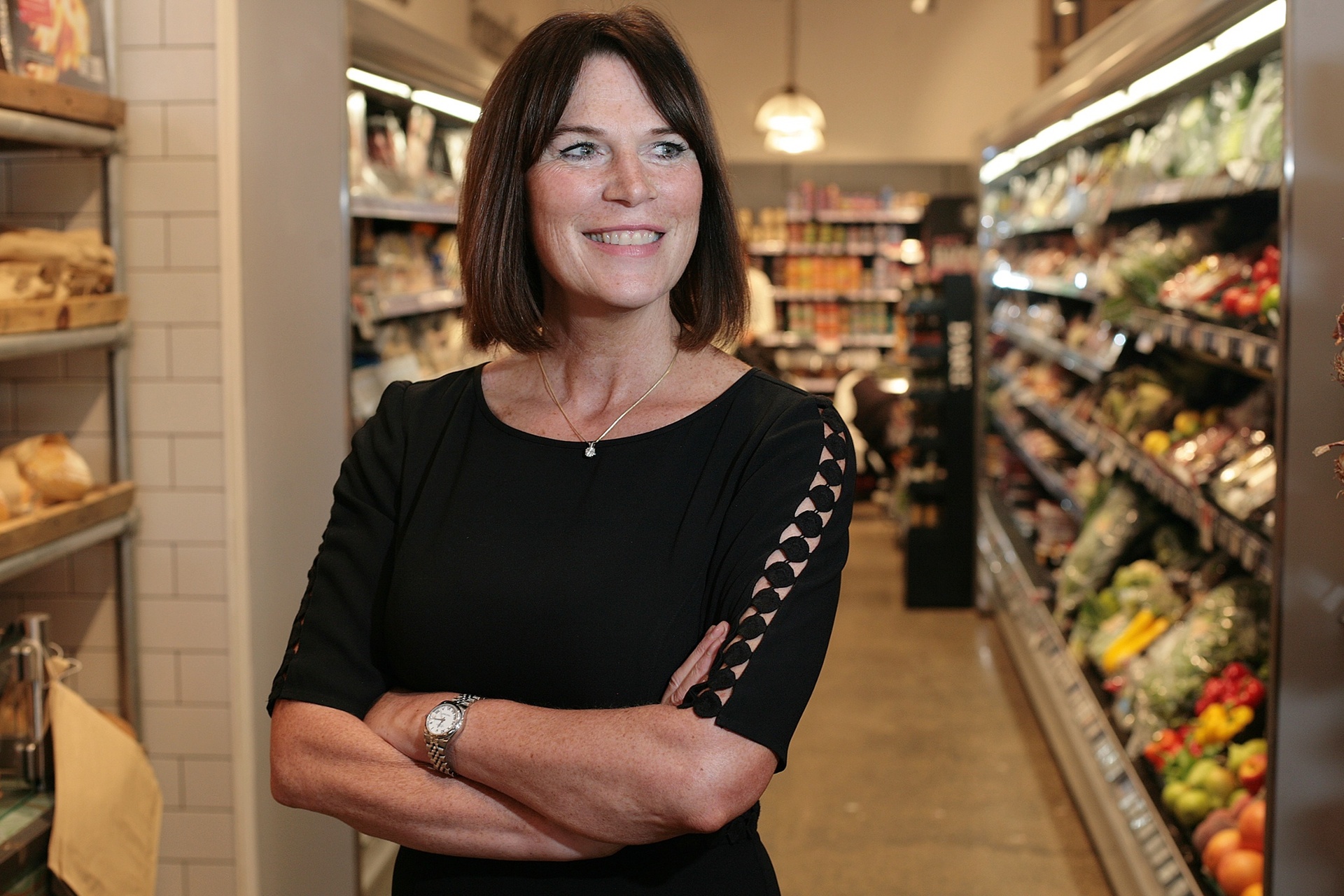“This is definitely the most dynamic and exciting time I’ve seen in retail. New rules are being written all the time. Tesco products on the shelves in Booker stores would have been unimaginable just a short time ago.”
Debbie Robinson, managing director of Spar, is catching her breath after yet another huge week for the convenience trade, with the Bestway-Conviviality deal just days old.
RN spoke to her one day before the Association of Convenience Store’s Summit (where she was due to speak and also lead one of the day’s sessions), and with consolidation dominating the thoughts and conversations of everyone involved in convenience, it is a topic she knows cannot be skipped over.
“If we’re all being honest, the surprise has been the sheer amount of change. There had been a lot of talk about P&H going under; we knew Nisa had been losing money; we knew Costcutter had been losing a lot of money. Everyone was looking for growth. I think brand and brand positioning is going to be very interesting in the future. How do consumers react to finding other brands in a store, for example? Does it enhance the brand or does it look like that particular fascia needs support? Only time will tell.”
As the consolidation-related stories have piled up in recent months, Spar has been a name relatively rarely mentioned.
“We have not had the service issues you’re referring to in some of our key competitors. We haven’t had the lack of continuity of supply or really poor service because we have invested in our logistics and our infrastructure and our fleet and warehouse capabilities. Their success is our success.”
In addition, Ms Robinson says the Spar team has also focused on working with suppliers to find efficiencies.
“We’re really comfortable with the decisions we’ve made. It’s a lot about innovation and driving down the costs of goods for consumers and retailers. That has to be about being efficient rather than relying on sheer sale. We’re working with suppliers and I urge all of them to look at the most cost-effective route to market so the benefit can be passed on to consumers.”
There is a clear pride on Debbie Robinson’s part when she talks about the Spar business model and how it has aided the business during a tricky time for retailers and the supply chain.
“My background is working for the Co-op and the big supermarkets, and I have to say Spar’s logistics is world class. It is better than anywhere I’ve looked at. During the bad weather, we were able to maintain service over and above what we were seeing in the multiple competition. That’s thanks to our amazing logistic drivers.”
In contrast, Ms Robinson raises the issue of priorities among large grocers, in the newly consolidated market: “If there is a shortage of stock, is that going to the retailers’ own stores or is it going to an independent store? I think that’s going to be quite challenging.”
In reality, however, Ms Robinson would far rather discuss Spar’s latest developments and in-store innovations, and you can almost sense that the wider supply chain issues have been an irritating distraction from her group’s progress.
“Our focus has been on having a really vibrant own brand, just to make sure our national account retailers can compete in the marketplace. With the sugar tax we’ve reformulated all of our soft drinks so no one has to pay the levy. On our ready meal products we work with specialist suppliers so we can offer an extended product life for consumers while maintaining the integrity of the products. We also make sure our ready meals have at least one, if not two, portions of fruit and vegetables so we’re making a positive contribution towards health.”
And while other groups have been formally uniting, Spar has also been bringing a whole range of other brands into stores.
“We’ve forged lots of partnerships with Subway, Costa Coffee, Starbucks, Greggs and Insomnia Coffee. It’s been important for us to learn from the best,” she says.
The so-called disruptors have also come on board, with Spar stores in both Birmingham and Manchester working with Deliveroo, too. Ms Robinson says such tie-ins say a lot about the business she leads.
“If you look at Apple Pay, Spar were the first retailers to let customers use it – not just the first convenience retailers, we were way ahead of the multiples. We’re now looking at crypto currencies and what that means for us.”
The next day, at the ACS Summit, Debbie looks further into her crystal ball and suggests that – despite independent retailers being the “home of responsible retailing” – stores could soon be selling cannabis as laws and social attitudes change.
“What we won’t do is just jump on a bandwagon,” she tells RN. “Our structure promotes good decision making. We make good long-term decisions rather than short-term decisions to please shareholders.”
The future is a place Ms Robinson is clearly most comfortable talking about – getting her business ready so it never feels touched by the chaos other operators have felt.
She refuses to rule out a tie-in with a supermarket group at some point, however (“we’re doing very nicely as we are at the moment thank you,” is the party line). So is this planning a sign that, deep down, she and her team are scared of Amazon, Tesco and the other giants moving into the sector?
“If I was them I’d be more scared of us,” she says without a pause.



Comments
This article doesn't have any comments yet, be the first!